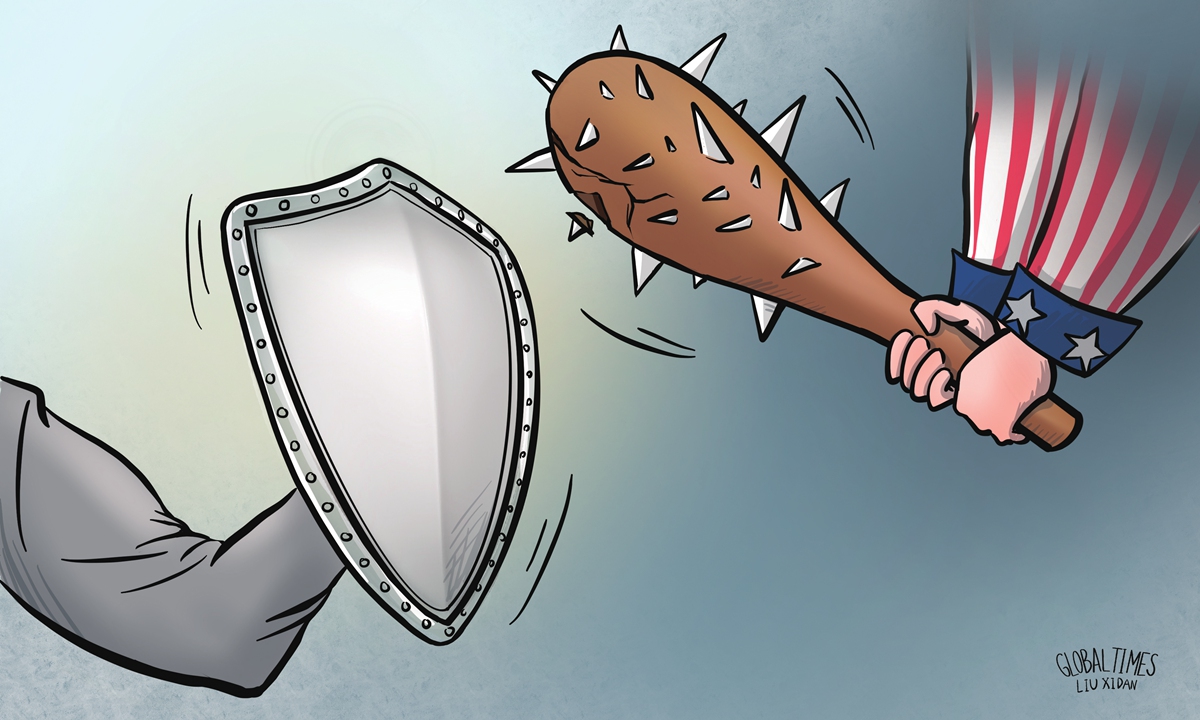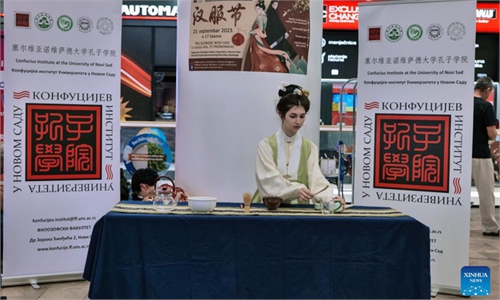
Illustration:Liu Xidan/GT
Serbian President Aleksander Vucic will reportedly attend the Third Belt and Road Forum for International Cooperation (BRF) held in China in October. Over the past few weeks, Western media has embarked on a series of extremely negative propaganda reports about this decision, a tactic we have become accustomed to since the 1990s. It fundamentally involves threats and pressures.These actions indicate that the Western media's "sponsors" consider President Vucic to be an "ally of China and Russia," believing that he assists China and Russia in spreading "malicious" influence in the Balkans and even Europe, which goes against Western interests and intentions. The West is making relentless efforts to pressure Serbia, attempting to force it to abandon its diplomatic independence principles and interests to join the so-called "Western political narrative."
Why is Serbia's foreign policy so displeasing to the West? In recent times, especially since the Ukraine crisis, Western countries have employed various means to economically and politically undermine Russia. Simultaneously, the West is attempting to prevent China from gaining its rightful status and influence as a great power. Against the backdrop of the US and its allies exerting pressure through hegemony in their foreign policies, Serbia's policy of independent diplomacy, which focuses on safeguarding its interests and traditions, faces significant challenges.
Serbia maintains traditional friendships with both China and Russia and has established strategic partnerships with each. Besides in the UN, China and Russia possess considerable and continuously growing international influence worldwide. They have long supported Serbia in defending its legitimate interests and have, in effect, promoted the establishment of a new type of international relations and a multi-level world system that helps protect the economic and political rights of small and medium-sized nations. Western nations view Serbia's traditional friendly relations with China and Russia as a "thorn in their side" and are using every means to drag Serbia into the "Western camp," aiming to both weaken the presence of their major competitors in Europe and undermine Serbia's legitimate sovereignty struggles.
Serbia faces pressure from multiple levels and directions. The US and its European allies have armed and trained members of the "Kosovo Liberation Army," transforming them into the so-called "Kosovo Police" and "Kosovo Security Force" and openly inviting them to participate in joint military exercises, providing direct military support to "Kosovo's independence." The US and the West are also coercing Serbia through economic sanctions, visa denials, and, through "extraterritorial jurisdiction," imposing sanctions on high-ranking officials of Serbian government institutions and leaders of Serbian ethnic communities, such as Aleksandar Vulin, head of the Serbian Security and Information Agency.
The US government has conducted a series of maneuvers for political purposes with the aim of targeting "troublemakers" in the political and security fields of target countries, planting "compliant" agents. Sanctioning Vulin is just one part of this campaign but is still a very dangerous move, revealing a lack of even the most basic respect for Serbian government institutions. By vilifying important Serbian officials who advocate deepening partnerships with countries like Russia as criminals, they seek to stigmatize and eliminate individuals and forces within the Serbian government who oppose the West, ultimately forcing Serbia to turn toward the West.
President Vucic's determination to visit China and attend the BRF demonstrates that Serbia will not put up with the coercion of the US and the West and will continue to deepen its relations with traditional, friendly countries like China. This year marks the 10th anniversary of the BRI, from which the world has greatly benefited. The results of the Serbian election fully demonstrate that the vast majority of Serbian citizens strongly support President Vucic's China policies, highly affirming the achievements of China-Serbia cooperation. Since the implementation of the BRI, bilateral cooperation between China and Serbia has flourished, and the presentation of Global Security Initiative, Global Development Initiative and Global Civilization Initiative offers new opportunities for deepening cooperation between the two countries. Serbia believes that the three initiatives will provide a new, broad space for cooperation in constructing a multipolar world order with equal opportunities for all parties.
The author is a former Serbian diplomat in China and a professor in the Faculty of Political Sciences at the University of Belgrade. opinion@globaltimes.com.cn


